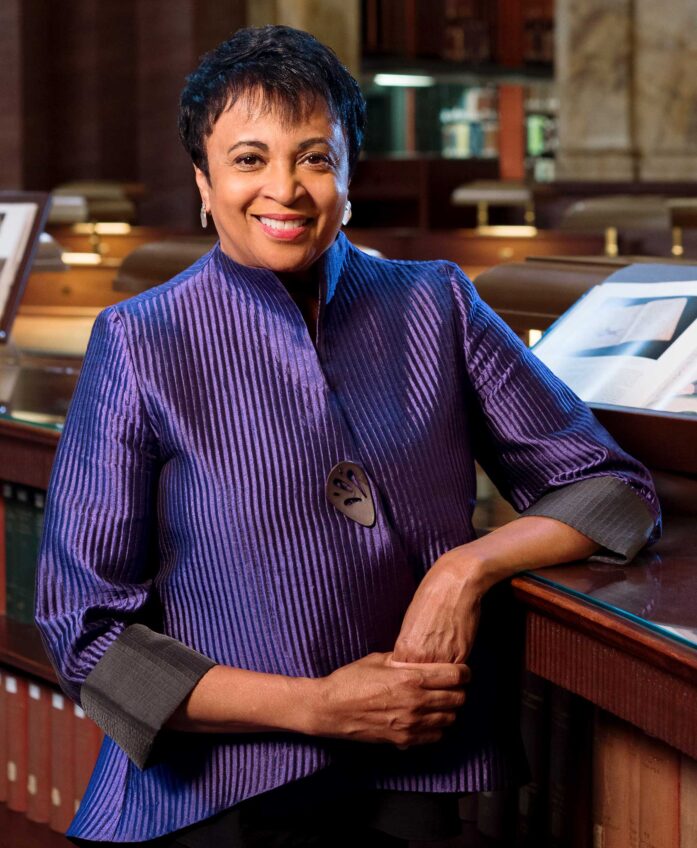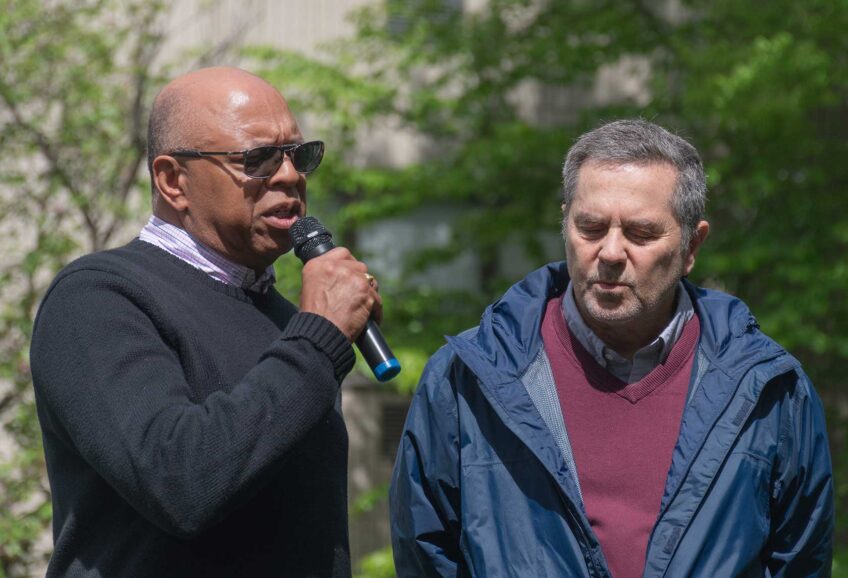UMass Boston has a lot going for it, with two new academic buildings and its first-ever dormitory in the works and a 40 percent increase in enrollment over a ten-year period.
But the waterfront campus also faces many of the pressures that dog its sisters in the UMass system: declining state funding, increasing costs and subsequent tuition and fee hikes that hit some of the state’s most vulnerable students in the wallet.
Adding to the volatility on the campus, the university, which faces a $22 million budget deficit, released 100 adjunct professors, a move some faculty say has increased workloads for remaining professors.
And amid what many see as uncertain times, UMass Boston Provost Winston Langley removed the chairman of the Africana Studies Department, Robert Johnson, an action that sparked controversy.
In an interview with the Banner last week, Langley said he removed Johnson after standard academic quality and development review, during which academics from outside the UMass system evaluated the quality of instruction in the Africana Studies department.
While Langley gave few details of the report, he said it was not complimentary.
“It was not lovely, to say the least,” he said. “They urged us to take drastic steps and see that the department develops in a way that’s consistent with what we want to have for our students.”
Langley did say that department enrollment had declined from 30 students to 15 over the last five years, but he did not say whether that change reflected a long-term decline or a periodic shift in numbers.
Africana Studies professor Jemadari Kamara said a better measure of the department is enrollment. By that measure, he said, the department is doing well.
“Enrollment, which is limited by the college, is near maximum total capacity,” he said.
Langley said the college shifted from allowing professors to teach three courses per semester to two, to allow more time for research. During the time of the AQAD review, Kamara said, two of the department’s seven faculty members had just been denied tenure by the College of Liberal Arts, under which Africana Studies is housed, and two were out on leave.
“That was the context in which this review was written,” he said.
Langley said the AQAD review found that the Africana Studies curriculum offerings were outmoded, noting that much of the reading for Africana Studies courses dated back to the 1960s.
“A research university should be at the leading edge of any discipline,” he said.
Kamara contested Langley’s assessment of the curriculum, noting that the university approved 11 new courses over the last two years.
In the end, Langley said, he was within his right to remove Johnson from the chairmanship of the department.
“There’s a difference between electing and appointing a chair,” he said. “The faculty has the right to elect a chair. The dean has the ability to appoint a chair.”
As for criticisms that the university has sought over the years to dismantle the College of Public and Community Service — a program that awards class credit for life experience and measures students competencies, Langley said the university is committed to keeping the program going.
“It will exist,” he said. “We are in the process of refashioning and strengthening it.”
Langley has appointed a new interim dean for CPCS, Professor Stephanie Hartwell. While at one time CPCS had five majors and a graduate program as well as its own faculty, the college’s faculty now are housed in different academic departments. The dismantling of CPCS began long before Langley was appointed provost. Some see the withdrawal of support from the program as evidence the college is moving away from its so-called “urban mission,” a commitment to provide quality education to the working class residents of Boston.
Marlene Kim, president of the UMass faculty union, says the financial pressure on the university could have a negative effect on the very students it serves.
“Handling the deficit by reducing faculty, increasing student fee and tuition and increasing the ratio of students to faculty will be detrimental to the quality of education at UMass,” she said. “We’re very concerned about that.”
Langley said the university remains committed to serving a diverse student body.
“I think the university faces challenges,” he said. “We need more resources. But we have a diverse population of students who are dedicated. We have individuals whose skills are forging partnerships with multiple communities. We have a diverse student body. It’s a special jewel for the Commonwealth. The achievements of our students are, in many cases, exceptional. We look forward to the future with optimism.”







